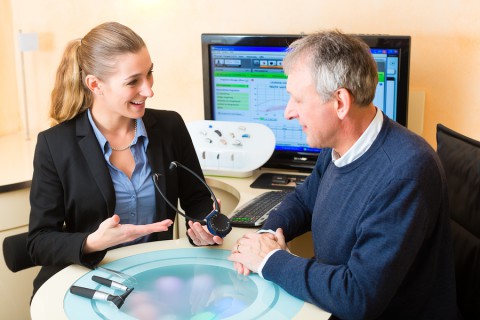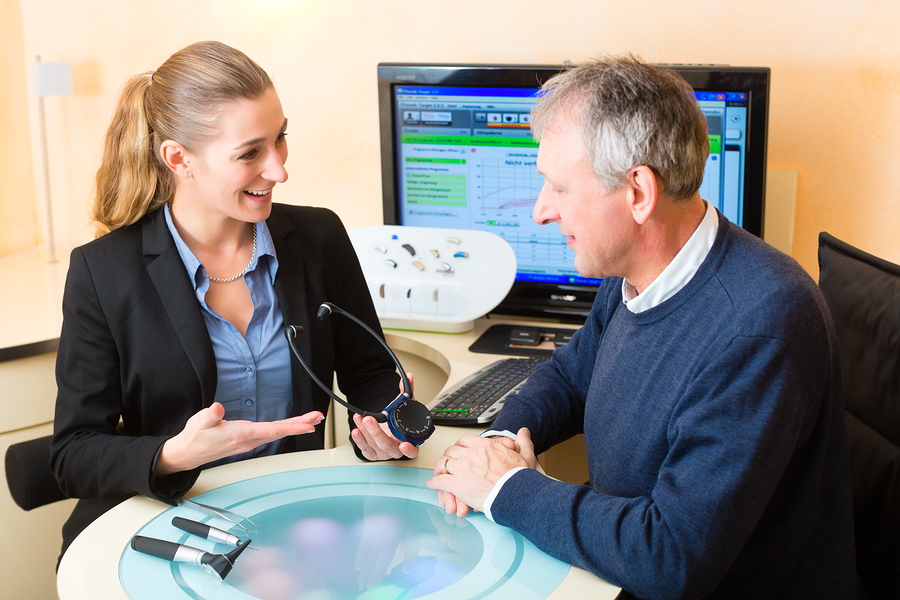 Men shouldn’t ignore their hearing loss, the Better Hearing Institute (BHI) warns. The BHI cautions that hearing health plays an important role in men’s lifestyles, enabling them not only to remain professionally and socially engaged but also to feel younger and stay active. Uncorrected hearing loss is linked to a range of chronic diseases like heart disease and diabetes along with a broad spectrum of psychosocial disorders, they add. Audiology interventions are essential for maintaining optimal overall health.
Men shouldn’t ignore their hearing loss, the Better Hearing Institute (BHI) warns. The BHI cautions that hearing health plays an important role in men’s lifestyles, enabling them not only to remain professionally and socially engaged but also to feel younger and stay active. Uncorrected hearing loss is linked to a range of chronic diseases like heart disease and diabetes along with a broad spectrum of psychosocial disorders, they add. Audiology interventions are essential for maintaining optimal overall health.
What Specific Psychosocial Problems Are Linked to Hearing Loss?
HearUSA reports that hearing loss can adversely affect emotional and mental health due to disrupted communication. They further note the malady is associated with increased cognitive disorders, including a decline in memory, alertness and general ability to cope. Moreover, according to the National Institute of Health Senior Health, men’s hearing loss can lead to depression and social withdrawal. If the men are older, the affliction can cause them to be misunderstood by those around them who may erroneously assume them to be uncooperative, confused and unresponsive.
A hearing deficit can negatively affect the emotional and physical health of the wives of the men who are afflicted with it as well as the men themselves, the National Council on Aging explains. Furthermore, the effects on a marriage can include a less fulfilled sex life and in some instances, may even lead to divorce.
How Has the Field of Audiology Been Transformed?
Today’s hearing aids bear little resemblance to those used in decades past. The technological revolution has made them highly effective, sophisticated and almost invisible. These devices adjust automatically to different sound environments, permitting men to use their smart phones and other electronic gadgets. Modern hearing aids are also waterproof, so they don’t interfere with active lifestyles involving swimming, skiing and other watersports.
What Else Can Audiologists Do to Address This Issue?
Aside from seeking an audiologist for a hearing aid, audiologists can recommend lifestyle practices that are protective against hearing loss. The BHI advises men to listen to electronic gadgets only at a low volume and to wear ear plugs in noisy settings like concerts and sporting events.
Traditionally, men are prone to postpone seeking audiology treatment for hearing loss. The challenge that audiologists face in addressing this problem is educating the public about the negative consequences of ignoring hearing loss.
Efforts to make audiology professionals more accessible can help as well. The BHI encourages those in this field to organize hearing screenings and host health fairs in communities across the nation.
Also, to help men determine if they need a full hearing test, the BHI is offering a free, quick hearing assessment online. From the convenience of their own homes, men can take the BHI hearing test and find out if they need to see an audiologist.
[cf]skyword_tracking_tag[/cf]









